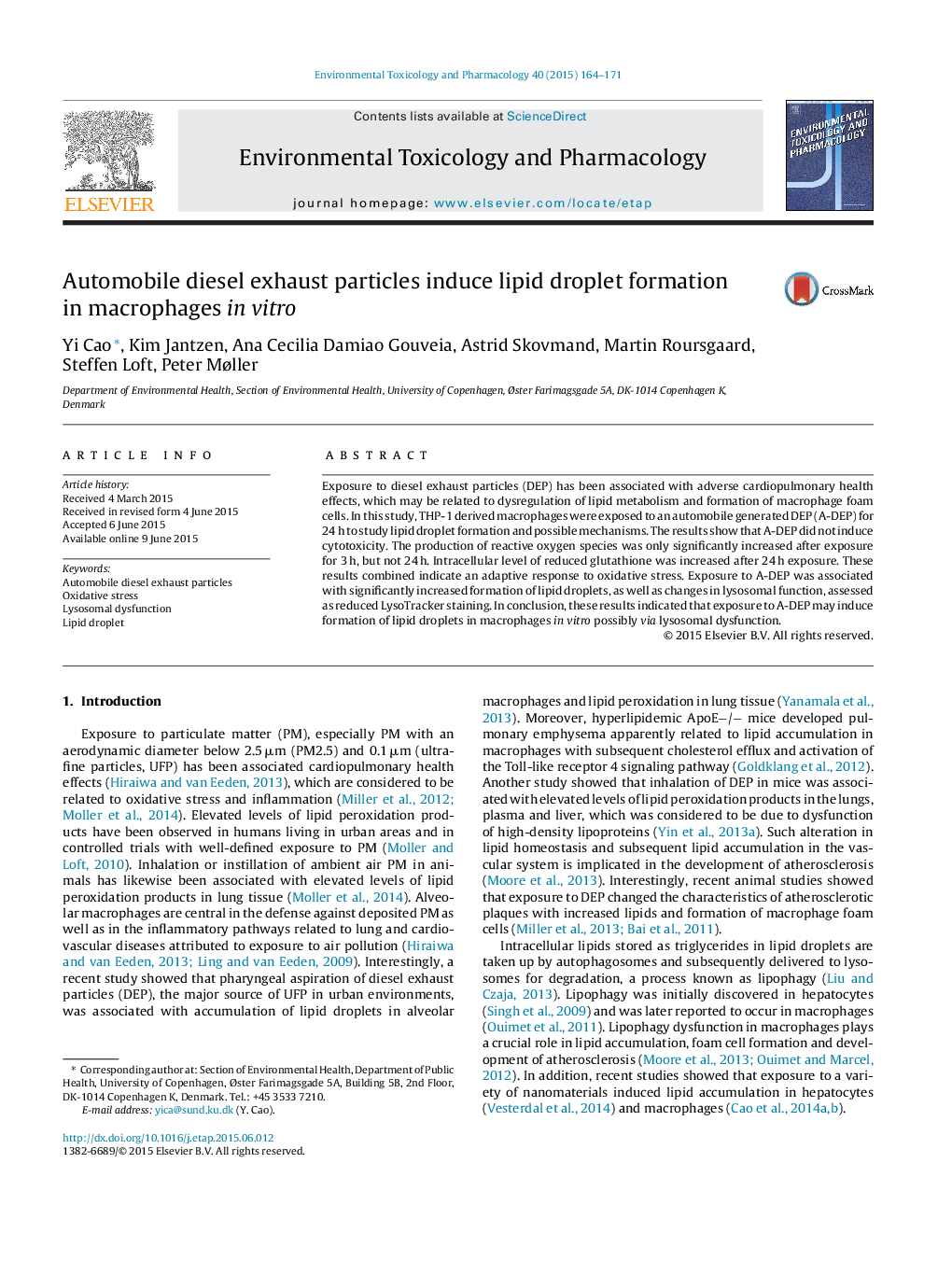| Article ID | Journal | Published Year | Pages | File Type |
|---|---|---|---|---|
| 2582961 | Environmental Toxicology and Pharmacology | 2015 | 8 Pages |
•THP-1 derived macrophages were used to study A-DEP induced lipid droplet formation.•A-DEP probably induced an adaptive response to oxidative stress.•A-DEP significantly induced lipid droplet formation in macrophages.•A-DEP induced lipid droplet is probably associated with lysosomal dysfunction.
Exposure to diesel exhaust particles (DEP) has been associated with adverse cardiopulmonary health effects, which may be related to dysregulation of lipid metabolism and formation of macrophage foam cells. In this study, THP-1 derived macrophages were exposed to an automobile generated DEP (A-DEP) for 24 h to study lipid droplet formation and possible mechanisms. The results show that A-DEP did not induce cytotoxicity. The production of reactive oxygen species was only significantly increased after exposure for 3 h, but not 24 h. Intracellular level of reduced glutathione was increased after 24 h exposure. These results combined indicate an adaptive response to oxidative stress. Exposure to A-DEP was associated with significantly increased formation of lipid droplets, as well as changes in lysosomal function, assessed as reduced LysoTracker staining. In conclusion, these results indicated that exposure to A-DEP may induce formation of lipid droplets in macrophages in vitro possibly via lysosomal dysfunction.
